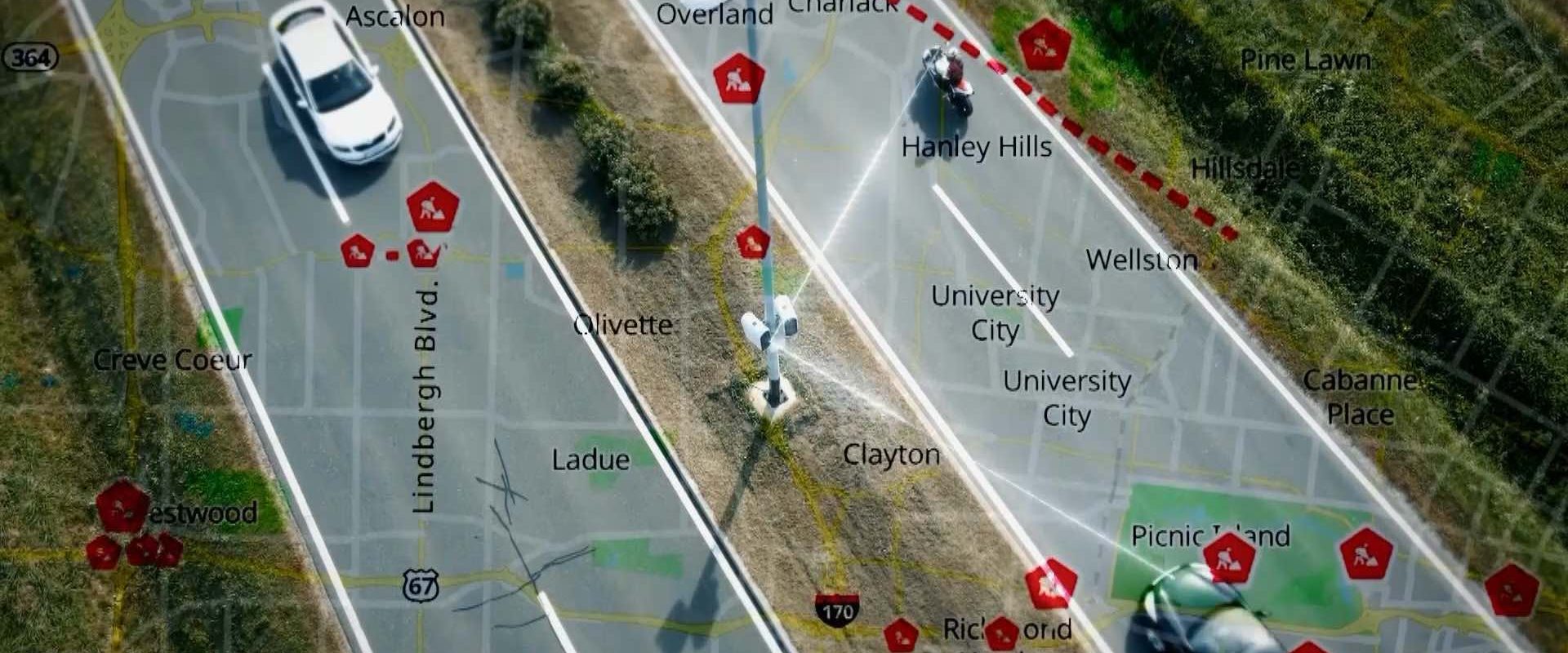Digitizing Roadways
How Traffic Data Can Help Save Lives
by Stephanie HartWith more and more cars on the road, it will likely take the latest in cutting-edge technology to keep driving safely. We recently found a Maryland-based global technology company that is paving the way in making roads smarter and safer. And we asked FYI reporter Stephanie Hart to seek out Rekor AI and see how mining traffic data can save lives.
STEPHANIE HART: Vehicles have evolved to become very smart today, essentially rolling data centers with thousands of sensors. But our roadways have not kept pace. Now, Rekor AI is bridging the gap, putting a digital layer over top of our roadways, essentially increasing the roadways DNA substantially so cars and roads can talk to one another. And that’s a game changer.
DAVID DESHARNAIS: Roadways have not really fundamentally changed since the Eisenhower administration early in the 50s, and we joke about it, but it’s true. And today, if you were to do a report card, and the government does this, it’s rated at a C-minus. That is the report card of roadways today, so there’s a problem.

STEPHANIE HART: The problem starts with our current traffic data collection method. It’s about 75 years old. Rubber tubes that cross the road still collect data and it’s basically obsolete today. Using artificial intelligence, Rekor AI is transforming this antiquated data collection system and driving it into the future.
DAVID DESHARNAIS: You don’t need those things on the roadway anymore. You can do all of that through digitization and AI, and frankly the smart nodes that we put on roadways does data collection in a fundamentally different way. It’s safer, it’s faster, it doesn’t put roadworkers in harm’s way, which is very, very common in old methods.
STEPHANIE HART: This is what a Rekor roadway sensor looks like. As you can see, it’s about the size of a shoe box and sits on top of a large pole. The sensors are very powerful and can make 21 trillion calculations per second; and magically, they’re also able to predict things that can happen like accidents.
DAVID DESHARNAIS: We’ve been conditioned since we were children to know what a cat looks like and what a car looks like. A computer doesn’t, so what we do is we train our artificial intelligence, or AI, to be able to understand what it’s seeing. And so, through that we can identify makes, models, colors, speeds, weights, air quality, a number of different dimensions of vehicles and the interactions between vehicles on roadways. We see about 70% more incidences that happen on roadways that would never, ever be surfaced by a 911 call.
STEPHANIE HART: Here’s how it works: Once a Rekor sensor identifies an incident, it’s passed along to a traffic management center like the one here behind me. They immediately know the what, when, where and how it happened. Then they can send the right response team to the incident.
Essentially, demystifying the 911 call resulting in a 23-minute faster response time– in some cases the difference between life and death. Rekor AI was founded in 2017 to assist with public safety missions. Over time, its evolved more broadly into transportation and how roadways are managed overall, with artificial intelligence and sensors at the heart of the company.
This is the laboratory where all of the parts for the sensors are assembled. From here they’re shipped all over the country and eventually covering hundreds of thousands of miles of roadway.
DAVID DESHARNAIS: Congestion happens because something happened, and in order to understand what happened, you need to respond to that, you need to be able to get it out of the way so you can get back to where you are trying to get to, and that’s really the evolution of our company.

STEPHANIE HART: At this point, Rekor AI can even track air quality, providing intelligence and recommendations on how it can be improved.
DAVID DESHARNAIS: We’re able to identify make, model, color, speed, weight, everything, including the amount of emissions that a vehicle is putting out there.
STEPHANIE HART: Rekor AI’s sophisticated system has been on the fast track since 2021 thanks to the Infrastructure Investment and Jobs Act, which made billions of dollars available to fund the modernization of roadways. Its future mission is creating an operating system for roadways, ultimately redefining travel as we know it, and in the end keeping all of us safer on the streets.
DAVID DESHARNAIS: Much like you would think of a network and the internet, right? The era of the internet changed the world for us. Roadways are kind of like the same thing. What we’re doing; these are routes to somewhere and we are digitizing them. We’re basically creating nodes of computer on the roadways and connecting them together to create really an internet for roadways.









